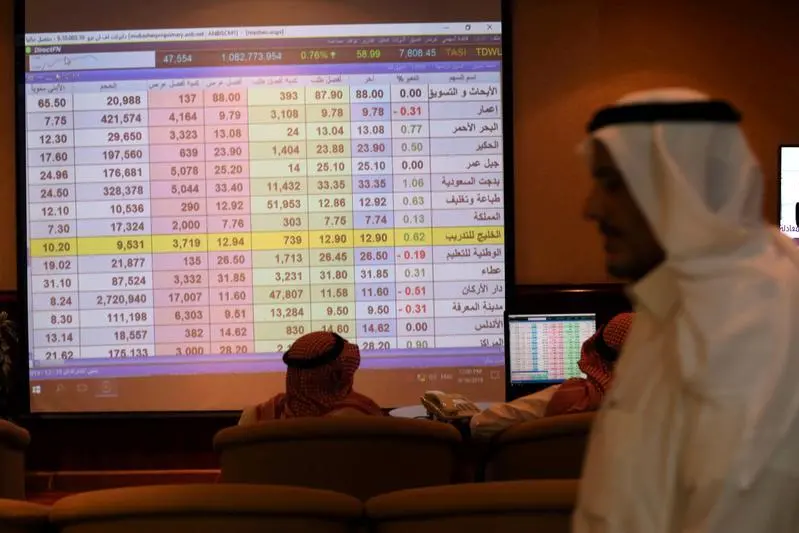PHOTO
Saudi Arabian stocks fell on Sunday led by banks, while most Gulf markets gained, mirroring Friday's surge in global peers after talks between the United States and China progressed towards a resolution of their trade war.
Saudi Arabia's index retreated 0.8%. The kingdom's largest lender National Commercial Bank and Riyad Bank dropped 2.4% and 2.3%, respectively, ahead of company earnings season starting this week.
The banking stocks also fell as the Saudi central bank said on Sunday that financial institutions in Saudi Arabia should hire Saudi nationals for leading positions and, if they hire foreigners, they will have to explain the reason to the regulator.
The Saudi bourse's main index has fallen in eight of nine sessions this month, leaving it down 2.5% year to date. It had gained more than 20% in the first four months of 2019 in the run up to joining the MSCI and FTSE emerging-market indexes, which helped attract billions of dollars from passive funds.
However, escalating trade tensions, volatile oil prices and growing geopolitical risks have hit the market since then and kept active emerging market funds from investing in the kingdom.
But gains in banking stocks boosted the Qatar index .QSI which rose 0.6% with Masraf Al Rayan up 1.4%, and Qatar National Bank adding a further 0.3% to the previous session's gain after posting an increase in nine-month net profit.
Dubai's main share index was up 0.5%, led by a 2 % rise in blue-chip developer Emaar Properties .
Contractor Arabtec Holding surged 8.9% after hiring an adviser on a potential merger with another construction firm Trojan Holding, Reuters reported citing sources.
In Abu Dhabi, the index edged up 0.3%. International Holding Company climbed 8.8% and Abu Dhabi Commercial Bank rose 0.8%.
Outside the Gulf, Egypt's blue-chip index was down 0.6% with market heavyweight Commercial International Bank declining 1%.
However, steel makers Ezz Steel and Egyptian Iron And Steel both closed up 2.2% and 1.4% respectively, buoyed by Egypt imposing temporary import fees of 16% on iron billets and 25% on steel rebar for three years, a move designed to boost local production.
(Reporting by Shamsuddin Mohd and Maqsood Alam in Bengaluru; Editing by Emelia Sithole-Matarise) ((Shamsuddin.Mohd@thomsonreuters.com;))





















